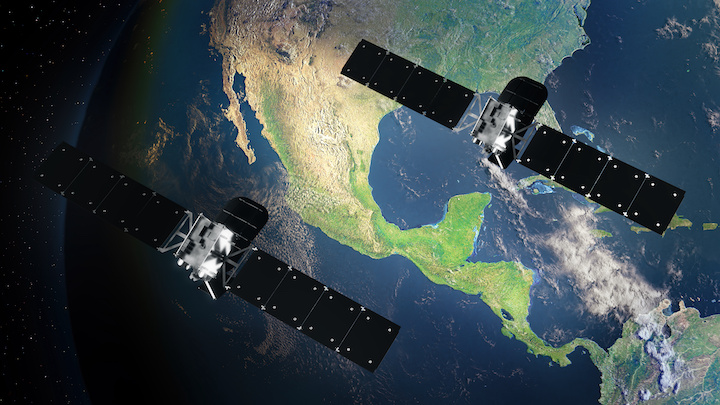Latest News

Rendering of Astranis MicroGEO satellites for Apco Networks over Mexico. Photo: Astranis
Mexican connectivity services provider Apco Networks ordered two Astranis MicroGEO satellites to provide telecommunications services in Mexico, Astranis announced March 14. The Ka-band satellites are expected to launch in 2024.
Astranis will build and operate the satellites, and Apco Networks will use the capacity to expand their last-mile coverage in Mexico.
“Mexico has a huge effort underway right now to get people connected out in the most remote, rural areas, and satellite is the only economical path to getting people connected out in the most remote areas,” Astranis CEO John Gedmark told Via Satellite.
Gedmark called this a first of its kind deal with a Mexican internet services provider for a dedicated, high-throughput, Ka-band satellite.
Apco has a vertically integrated managed service model and currently provides satellite services, and its existing terminals and networking equipment will be compatible with the satellites. The company plans to target business-to-business, government, and consumer markets.
“This partnership between Apco and Astranis will expand Apco’s presence in the market significantly, allowing us to expand broadband internet service to all people, no matter where they live,” Orlando Castillo, CEO of Apco Networks, commented in a news release.
Astranis is nearing the launch of its first MicroGEO satellite on the Viasat-3 launch, set for the week of April 8. The customer is Alaska satellite services provider Pacific Dataport, which will use the capacity to provide broadband in Alaska.
Gedmark said Astranis has secured multiple deals that have not been announced and expects to sign a “number of additional deals” this year. The company has announced a similar deal with Peruvian satellite service provider Andesat, and is also building eight satellites for mobility service provider Anuvu.
Its MicroGEO model makes it possible for regional service providers to secure dedicated capacity for their regions, Gedmark said.
“To truly bridge the digital divide, it’s about providing large amounts of capacity at the right price point, whether it’s to a consumer or to a telco that is bundling capacity for backhaul. For many of these countries, it’s all about getting to the right price point where the economics makes sense for them,” he said.
Get the latest Via Satellite news!
Subscribe Now